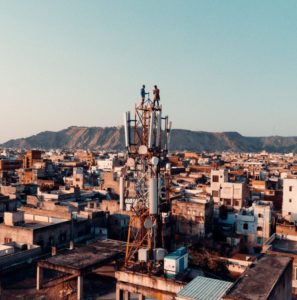Welcome to FindBiometrics’ digest of identity industry news. Here’s what you need to know about the world of digital identity and biometrics today:
Beyond Aadhaar, India’s Biometric Innovation Continues to Flourish

India continues to expand its use of biometric technology across various sectors to streamline processes and enhance security. In Punjab, the Health Department is implementing biometric attendance systems in Outpatient Opioid Assisted Treatment (OOAT) centers to ensure buprenorphine is administered only to registered patients, using approximately 1,100 biometric devices across 529 centers. The Union Public Service Commission (UPSC) will employ Aadhaar-based fingerprint authentication, facial recognition, QR code scanning, and AI-based live CCTV surveillance to prevent cheating and impersonation in exams. Cochin Airport is introducing smart gates to expedite immigration, reducing clearance time to 20 seconds by leveraging biometric data. And the Assam government has opened a center in Silchar to resolve biometric discrepancies for individuals listed in the National Register of Citizens (NRC), ensuring they can obtain Aadhaar cards.
Antigua Government to Implement Biometric Attendance Tracking
The Government of Antigua has approved the installation of biometric clocks across various departments to improve the accuracy of tracking employee attendance and overtime hours, addressing persistent discrepancies between hours claimed by workers and those recorded by employers. While the exact biometric modality and implementation timeline remain unconfirmed, officials are confident that the new system will enhance current methods. The Antigua/Barbuda Broadcasting Services (ABS) already employs biometric clocks, and the broader government adoption aims to improve data accuracy and foster better workplace relationships.
PayEye and Worldline Partner on Biometric Payments
PayEye has partnered with Worldline to develop and launch biometric payment services, featuring PayEye’s “eyepos” payment terminal that uses iris and facial recognition technologies. During an initial transaction, the system generates a real-time code from the user’s biometric data, which is then verified against the original template to authorize payments. Users can access this technology through the PayEye Global app, where they can register and link a payment card. The “eyepos 3” terminal supports multiple payment options, including NFC, QR codes, and traditional card payments, and features a 5.5-inch screen for displaying advertisements or shopping lists. The partnership aims to enhance security and convenience in payment processes, marking a significant step towards global expansion of biometric payment solutions.
Dominican Republic Opens Bidding Process for Biometric Passports
The Dominican Republic has launched a bidding process for new electronic or biometric passports. The new e-passports will include an embedded electronic chip, enhancing security and international recognition, potentially facilitating visa-free travel for Dominicans to various countries. Currently, the Dominican Republic is among the few countries without e-passports, which contain a chip with the holder’s biographical details and a biometric identifier. The e-passport initiative aligns with global standards such as those required by the U.S. Visa Waiver Program (VWP), which mandates biometric data for secure identity verification. The initiative is part of broader reforms within the General Directorate of Passports, which has improved passport issuance efficiency, reducing the process from three hours to approximately 30 minutes, and addressing urgent needs within two to three days.
Wicket’s Biometric Tech to Secure Entire NFL
The NFL is significantly expanding its use of facial recognition technology provided by Wicket, deploying it across all 32 teams to secure high-security zones such as locker rooms, press boxes, and the playing field. After a successful six-stadium pilot last year, the technology, initially introduced with the Cleveland Browns in 2020 for expedited fan access, will now focus on security and staff credentialing. The expansion aims to enhance security by ensuring precise identification and access control for thousands of staff, press members, and vendors. Billy Langenstein, the NFL’s Senior Director of Security Services, emphasized the need for thorough identification and accountability of all credentialed individuals. The biometric system, supported by Accredit Solutions’ credential management software, will be operational from the preseason’s first week.
Meta to Pay $1.4B in Texas Biometric Privacy Lawsuit
Meta has agreed to a $1.4 billion settlement in a biometric privacy dispute with the state of Texas, marking the largest settlement ever obtained from a single state’s action. This surpasses Meta’s previous biometric privacy settlements, including a $550 million settlement in 2020 over its “Tag Suggestions” feature and a $68.5 million settlement in 2022 related to Instagram’s similar feature. Those cases were filed under Illinois’ Biometric Information Privacy Act (BIPA), which allows individual consumers to sue for violations. In contrast, Texas’ Capture or Use of Biometric Identifiers Act (CUBI) relies on the state’s Attorney General for enforcement. Meta was accused of collecting biometric data without informed consent and sharing it with third parties. The settlement highlights Texas Attorney General Ken Paxton’s commitment to enforcing biometric privacy laws, as evidenced by the formation of a new team dedicated to CUBI enforcement following this high-profile case.
Australian Survey Sheds Light on Public’s View of FRT
A new academic report titled “Australian Public Attitudes to Facial Recognition Technology” shows that Australians generally support the use of facial recognition technology (FRT) by police and healthcare providers but are uneasy about its use by private tech companies. Conducted by Monash University, Australian National University, and Deakin University, the survey of 2,006 adults highlights that most respondents have limited knowledge about FRT despite being aware of the term. Support for FRT is strong for age verification in online gambling (61 percent) and accessing government services (57 percent), but trust is significantly lower for retail outlets and tech companies like Google and Facebook. The report emphasizes the need for transparency and informed consent, with 89 percent of respondents wanting to be informed each time FRT is used in public spaces.
Worldcoin Hit with Fine from Its LATAM Hub’s Capital
Worldcoin has been fined 194 million pesos by the Buenos Aires Province’s Ministry of Production, Science, and Technological Innovation for irregular handling of biometric data. The fine addresses the company’s alleged failure to adequately protect sensitive biometric information obtained through iris scanning. Additionally, authorities have ordered the removal of predatory clauses from Worldcoin’s contracts to better protect consumer rights. This action follows an investigation revealing issues such as unclear age limits and problematic contract terms. The scrutiny is part of a broader global investigation into Worldcoin’s practices, including probes by French and Hong Kong authorities. Worldcoin, which aims to make Argentina a strategic hub for its Latin American operations, plans to appeal the decision, asserting a misunderstanding of the facts and legal framework.
Advocacy Groups Urge UK Home Secretary to Ban Biometric Surveillance
A coalition of 17 civil society organizations, including the Open Rights Group, Big Brother Watch, Liberty, and the Network for Police Monitoring, has urged the UK Home Secretary to implement safeguards for AI systems in policing, calling for a complete ban on predictive policing and biometric surveillance. The #SafetyNotSurveillance coalition’s letter argues that AI systems using data and algorithms to predict criminal acts perpetuate discrimination based on race, ethnicity, nationality, socio-economic status, disability, gender, and migration status. The coalition demands transparency, accountability, and legislative regulation for all AI uses in policing. The letter specifically critiques the use of facial recognition technology by police, urging a clear legal framework from the House of Lords Justice and Home Affairs Committee. The UK police have increasingly adopted facial recognition technology, with forces like Essex Police and the London Metropolitan Police implementing it to apprehend offenders.
—
August 1, 2024 — by Tony Bitzionis and Alex Perala








Follow Us